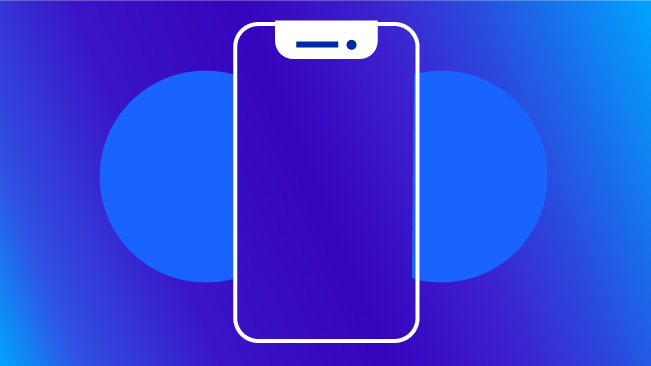8 Essential Tips For Great Business Phone Call Etiquette

Raise your hand if you’ve heard a co-worker say “Ugh, I’ve gotta jump on a call”! Most people don’t look forward to phone calls with clients. There’s the inherent fear that you’re not prepared (It’s hard to imagine the audience in their underpants when you’re only calling one person across the country), or that you don’t have the right report or solution lined up.
If you work in the Search & Analytics fields like we do at our office, it’s quite possible that you have not and will not meet certain clients face-to-face due to distance, so building rapport can be a challenge. You just don’t get to shoot the breeze on the phone like you might during an on-site visit or lunch with your client.
In fact, relationship building is my favorite part of working with clients. Helping them succeed and meet their objectives helps me succeed and meet mine, so I invest in good client relationships wherever I can.
If you don’t share my excitement over client calls, I’ve assembled the following presentation to help you ease any fears when preparing for and executing your next client call.
Not showing? View here
Here are the tips:
1. Frame Each and Every Call before Dialing
Why is this call taking place? Is it a kickoff call with a new client? Are you reviewing a monthly report? Before the call, write down your objective, information you must convey, and anything you need to ask your from your client.
This will ensure you won’t forget any key points. Even spending 5 minutes before a call to gather yourself and your notes can make all the difference!
2. Use Inclusive Language
Everyone likes to feel like they are part of the team. Use pronouns like “we” and “our” to create a group feeling.
I consider myself part of my client’s teams, and you should too because, if you’re providing a service or consultation, you are!

3. Limit your Buzzwords & Local-isms
Remember your audience when delving into your mental bank of acronyms, abbreviations and business buzzwords, as these can lead to confusion. This can be difficult. I work in SEO and can probably compose an entire sentence comprised of nothing but acronyms, but it may be hard for a client to understand.
In journalism classes they often suggest you “write for your Grandma”, and while I won’t go quite that far, I do recommend that you gauge your client’s technical level and speak to that.
Regarding Local-isms or regional turns-of-phrase, use your judgement. There are certain phrases you may say in casual conversation that just aren’t universal in all regions. Take it from me, I live and work in Pittsburgh. If you didn’t know, we have our own language.
It doesn’t translate well on a call with clients in California. Noting any home-spun phrasings you rely on and eliminating them from your client phone calls will lead to more clarity.
4. Be realistic when making promises
Don’t promise more than you can deliver, deliver more than you promised. Part of your client call will be managing client expectations. Whether you are talking about campaign performance, deliverables or contracts, be careful what you say might happen. Sure, numbers could explode and make everyone rich, but what is the likeliest scenario?
Similarly, don’t promise that you can deliver work 2 weeks before a deadline if it will require your team working around the clock. Your team won’t take kindly to that, and the client, who would have been perfectly fine with it by the normal deadline, now has been let down.
5. Empathize!
Just as everyone wants be on a team, everyone wants to feel heard.
Early in my career I was fortunate enough to work closely with a sales executive in the media world who was dynamite at his job. He didn’t talk fast, and he never got mad. He listened to his customers and clients, asked about their problems, then asked how he could help remove barriers to a fix. No hard sell required.
Not only was this incredibly effective, it wasn’t even a “method”, it was just being nice and helpful to people you work with. What a simple thing to do!
6. Getting Back on Track
After you’ve heard about the dwindling marketing budget and your client’s woes from booking a flight for vacation, you do have to loop the conversation back to its original point (See Step 1.).
Lead the call as best you can and be honest and straightforward about what you need. Is it time to review our reports? Do you need a file or access to something? Now is the time to get the conversation going again.
7. Tell a Compelling Story
I LOVE this video from Stanford University Professor of Marketing Jennifer L. Aaker I found via thinkwithgoogle.com. Everyone working with data in any capacity should be required to watch this.
Aaker suggests that stories make data easier to understand and remember, and I couldn’t agree more. Watch it, I’ll wait.
All done? Good, let’s continue.
Every call with your client should tell a story. It won’t always be the big story about how you’re doubling revenue or single-handedly innovating their business, but you must be able to attach a why to anything you are recommending or reporting on.
It’s not enough to simply say that the bounce rate on the client’s website is increasing. Why? What does it mean? How might we fix it? What’s the deeper story here? Many times, it’s up to you to parse an explanation from the available data and help the client understand it. In other cases, it’s your job.
8. Take a Stand and be an Expert
This is often forgotten during a busy workday, but the client is paying to talk to you! Isn’t that great? Make sure you are delivering value by being prepared, authoritative and firm. If you are offering a strong recommendation for an action, defend it. Explain why it’s considered a best practice or what could go wrong if you don’t do it.
Take ownership, and don’t waver with “umms”, “maybes” and filler words. There are times to be flexible and open-minded, but when you’re sure of a solution or recommendation, be firm. That might just be what the client needs to take back to their team to get the ball rolling.
You’re all set. Good luck.
How do you build relationships over the phone? I’d love to hear your tricks! Leave a note below.


